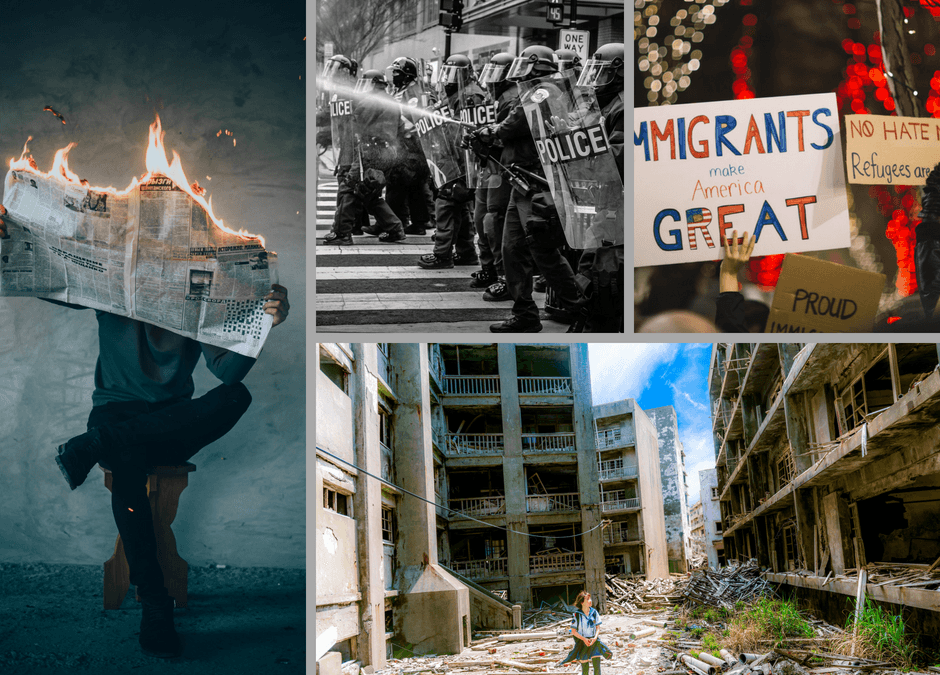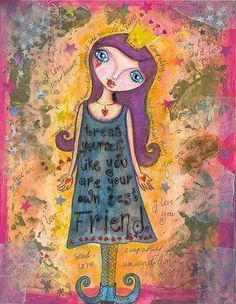As the Beatles sang in their song, A Day in the Life,
I read the news today, oh boy….
As I read the news, the main headline was about the ‘final call’ to save the world from ‘climate catastrophe’—in other words, everyone and everything frying in less than 30 years time. There was a piece about girls in school uniform being sexually harassed, and another about increasing homelessness even in prosperous cities in the USA. Another right-wing candidate has leapt to prominence, and the incidents of PTSD among veterans is seriously on the rise. Young people who have enough money for a 10% deposit on a house still cannot afford to buy one. Then the usual stories of bribery, corruption, and the misery of long-term refugees is like a familiar backdrop to the daily round of suffering, violence and natural disasters.
Quite a lot of my friends have stopped watching the news. They say it is way too distressing, and makes them feel powerless, frightened and miserable. Why put yourself through it—it’s enough to make you crazy?
So why do I risk the news driving me crazy and keep watching it so regularly?
Common humanity
Something that comes into my head over and over again as I struggle with watching the news is that any one of the people I am watching could be me—I could be flooded out of my home or attacked by a terrorist while moving about the city. I am one of the people directly affected by Brexit, new tax regulations and the housing shortage. It seems vitally important to realize that each of the news stories are made up by people just like me. We might live in different countries, have different interests and concerns but each of us needs basic shelter, enough to eat and a way to earn our living. We all have hopes and dreams and we all experience crushing disappointments, anxieties and fears. Somewhere, at some level we all want and need love.
Putting myself in their shoes
As I watch the news I try to put myself in the shoes of the people involved – to see things as they are experiencing them. This is not the same as letting myself get overwhelmed by what is going on. It’s more like walking a bit on someone else’s shoes until I get their feel and then putting my own back on. I know it will not help anyone if I just feel bad and miserable. The point for me is not to withdraw but to see it all within the scope of how inter-connected we all are – to keep my own heart open and responsive, to dare to be vulnerable.
It gets a lot harder if I try to put myself in the shoes of the perpetrators of terrorism, or conflict, or crime and sometimes it is just not possible. At the very least, I make an attempt to fathom what led them to act as they did—to ask myself what suffering they may have experienced that led to such drastic action.
Dealing with judgement
We seem to be living through a time of deep polarization between different opinions and ways of seeing the world. It is all too easy to judge those we disagree with as being less capable, less honest, almost less human. It hurts to see legislation, political appointments and decisions that go directly against what you yourself feel to be important. At such times it’s easy to feel cynical and dismiss it all as just another manifestation of how hopeless it all is and how we should not even try to make sense of any of it.
I was struck by a recent video I watched from Michelle Obama in which she encourages people to get out and vote—to take responsibility for how they want to live. She did not urge people to vote democrat—she simply encouraged people not to go passive in the current melée of politics but to engage and choose. Her insistence that it is fundamentally up to us resonated with me.
Managing my dislike
I confess to feeling angry, frustrated and overwhelmingly sad when certain politicians come on the screen—I just need to hear their voice, or see their name and my reaction rolls in. It surprises me how visceral it is. Generally my preference is for dialogue, kindness and compassion and yet when these particular political figures appear on the screen I just want to yell abuse.
This cannot be called a productive response at any level.
Perhaps one of the main reasons for this reaction is my sense of helplessness—I want to hit back because of how frustrated I feel. Just lately, it has been becoming clearer that if I can manage my exactions with more equanimity, less dislike and less judgement I can feel that I am taking back some control of the situation. A meditation teacher of mine used to say, If you want to bring about nuclear disarmament, start off with the atom bomb in your own heart. The wisdom of this is finally beginning to filter through.
Just as Michelle Obama encourages participation as a way of taking responsibility, so working with my reactions—from aversion, through judgement to dislike—can help me to have more resources and energy to see the new items more clearly. This can only help in developing the understanding and compassion I am looking for.
Bearing witness
Watching the news has become a way of bearing witness for me—bearing witness to the pain and suffering in the world, to the struggles that we all have to manifest our natural capacity for kindness and to my own path to developing my resources in order to be of benefit, rather than adding to the chaos and confusion.
Hello! If you enjoyed this blog and want to go deeper, you might enjoy this online course: How to Be a Good Friend to Yourself
https://www.awarenessinaction.org/be-a-good-friend-to-yourself-emg/
Photo credits
Photo by Elijah O’Donell on Unsplash
Photo by Randy Colas on Unsplash
Photo by Nitish Meena on Unsplash
Photo by Jordy Meow on Unsplash



Very good article!
Thanks so much Sue!